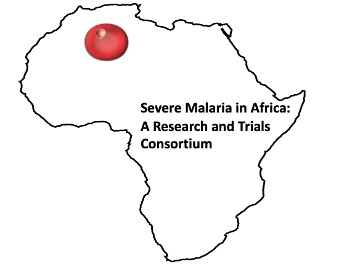This blog post was written by Professor Kathryn Maitland, Professor of Paediatric Tropical Infectious Diseases at the Faculty of Medicine and Director of the Centre of African Research and Engagement at the Institute of Global Health Innovation, Imperial College London. She leads the SMAART Consortium (Severe Malaria Africa: A consortium for Research and Trials).
In much of sub-Saharan Africa (SSA), malaria remains a key cause of paediatric hospital admission, and makes a substantial contribution to under 5-year mortality, estimated at 600,000 annually.
Despite implementing currently effective, fast-acting artemisinin-based combination therapies, the multisite SMAART observational study has shown that inpatient mortality for paediatric severe malaria (excluding hyperparasitaemia with no additional severity features) remains unacceptably high at ~8%. The SMAART consortium was created in 2018 to translate recent advances in platform trial design to improve outcomes for severe childhood malaria across SSA.

SMAART is the only existing multi-site, multi-country collaboration conducting research in paediatric severe malaria on the continent.
SMAART-MAP, a multi-country adaptive platform trial (ISRCTN79071535) is simultaneously evaluating three adjunctive therapies in Phase II trials across SSA, addressing severe malaria complications (seizure prophylaxis, transfusion strategies and renal protection), with biomarker or clinical therapeutic efficacy endpoints based on putative mechanisms of action, to identify the most promising interventions to take forward into a large Phase III/IV mortality endpoint trial. The trial is being run in eight hospitals across six African countries (Ghana, Democratic Republic of Congo, Uganda, Kenya, Zambia and Mozambique).
The SMAART consortium is a multidisciplinary collaboration currently involving partners from SSA, Europe and Thailand with strong track records in delivering high impact guideline-changing treatment trials in paediatric severe malaria. SMAART’s ambition is to improve short and long-term outcomes for children with severe malaria in SSA by conducting better research studies faster, coordinating current and future research more productively, and hence enabling evidence-based continuous updates of disease definitions and treatment guidelines.